Which Golf Clubs Should I Replace First?
Knowing where to start is something not all golfers finds easy - so here is some useful advice
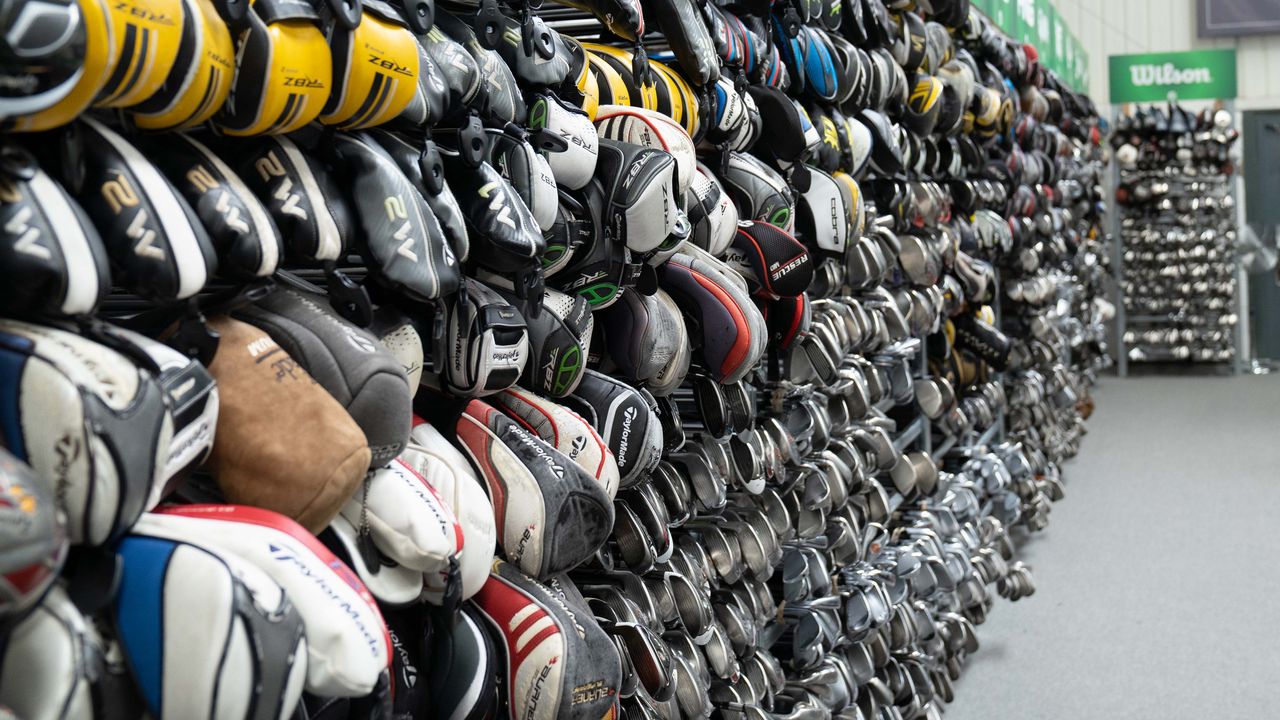

So you’ve made the decision to make some changes to your golf bag. Very wise, for it’s been, what, six or so years or so since you last upgraded? Who knows what potential performance benefits you could be missing out on.
One question you might asking yourself is, ‘Which golf clubs should I replace first?’ The obvious starting point is to replace those clubs that are showing signs of wear and tear, something that can start to compromise your performance in a number if ways, particularly when it comes to the short game.
Wedges are usually first
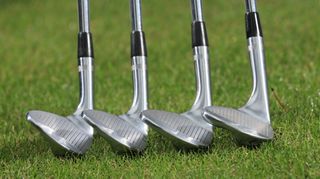
It's one of the reasons why the first clubs to be replaced are your 'scoring clubs', the wedges, which is the fastest deteriorating club in the bag. Most PGA professionals would advise replacing your wedges every two to three years. You might get away with stretching that time out if you only play a dozen or so times a year, but if you’re playing regularly and practising a lot, your wedges might need replacing sooner. Worn grooves aren’t going to offer you the same amount of spin, so it’s crucial that you upgrade them when required.
Then the driver...
After the wedges, for a lot of golfers it’s the driver that usually requires updating next. Of all the advancements made with golf clubs over the last 20 or so years, it’s probably the driver that has seen the most change – and you don’t want to get left behind. Not only do the very latest drivers help golfers to find extra yards – more so than ever before – they have never offered so much forgiveness. If you haven’t upgraded your driver for six or seven years, you could be missing out on a lot of assistance off the tee.
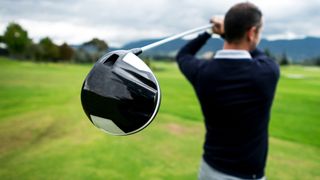
One of the other significant advancements in technology where woods are concerned has been the introduction of adjustability, which has given golfers the opportunity to fine-tune their set up. If you bought a non-adjustable model several years ago, there’s a chance that it could be limiting how you perform off the tee.
Adjustability in golf clubs was permitted by the governing bodies in 2005. Since then we have had weights you can move manually, weights that slide back to front and side to side, and adjustable hosels that can vary loft and lie. The real benefit of all this was that any golfer could now get the same level of customisation in their local store as an elite player on a tour truck.
Irons have a longer lifespan
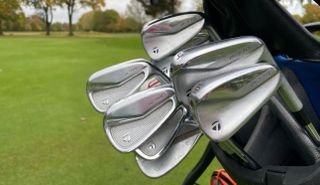
Irons are probably the last clubs that golfers will replace. Generally speaking, technology hasn’t moved on at such a rate that your irons from two, three, maybe even five years ago, are completely out-dated. However, there are a number of reasons why you might want to upgrade your set.
Get the Golf Monthly Newsletter
Subscribe to the Golf Monthly newsletter to stay up to date with all the latest tour news, equipment news, reviews, head-to-heads and buyer’s guides from our team of experienced experts.
Let’s start with the obvious and, again, wear and tear is a good reason to update. Unless you buy head covers for your irons, they’re bound to scuff and wear in the bag as they knock against each other, more so if you carry your bag. It doesn’t mean that you should just wait until your irons are completely worn out before you replace them, even if that is the more sustainable and eco-friendly option.
Other reasons to change
Perhaps a bigger reason to change your irons is because you’ve become a better, or worse (sadly, that does happen), golfer. Most people don’t become seriously better/worse overnight, but if you have noticed your handicap heading slowly in one direction, there’s a good chance that the quality of your ball striking has improved or worsened and you’d benefit from a different type of iron.
Along the same kind of lines, there’s also a chance that your swing speed is not what it was several years ago. Whether age has finally caught up with you or you’ve suffered an injury that affects how fast you can swing the club, there’s a chance that you could benefit from a change in clubs and different shafts.
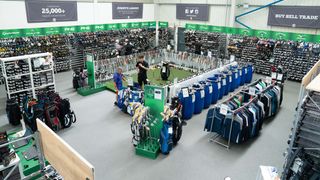
Of course, there’s still a decision to be made about where you buy your next set of irons, or another driver. Giving the rising cost of brand-new gear, you might want to consider buying second-hand clubs.
golfclubs4cash is Europe’s largest retailer of second-hand golf equipment, and with more than 25,000 listings online at any one time, you should have no problem finding what you’re after. It might not be brand-new, but you’re not going to be losing out on too many performance benefits if you’re a product cycle or two behind.

Michael has been with Golf Monthly since 2008. A multimedia journalist, he has also worked for The Football Association, where he created content to support the England football team, The FA Cup, London 2012, and FA Women's Super League. As content editor at Foremost Golf, Michael worked closely with golf's biggest equipment manufacturers and has developed an in-depth knowledge of this side of the industry. He's a regular contributor, covering instruction, equipment, travel and feature content. Michael has interviewed many of the game's biggest stars, including seven World No.1s, and has attended and reported on numerous Major Championships and Ryder Cups around the world. He's a member of Formby Golf Club in Merseyside, UK.
-
 How To Watch The Players Championship: Live Streams, TV Channels, Schedule
How To Watch The Players Championship: Live Streams, TV Channels, ScheduleThis year will be the sixth running of the event, with 23 nationalities competing and with the final round played around Augusta National's iconic course.
By Roderick Easdale Published
-
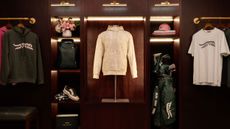 Sun Day Red Launches Azalea Gold Collection, And It Might Be The Best 'Augusta-Themed' Range We Have Seen
Sun Day Red Launches Azalea Gold Collection, And It Might Be The Best 'Augusta-Themed' Range We Have SeenTiger Woods' brand has just released the new collection and we are big fans already...
By Sam Tremlett Published
-
 How Titleist 'Used Every Tool In The Toolbox' To Enhance The New Pro V1 And Pro V1x Golf Balls
How Titleist 'Used Every Tool In The Toolbox' To Enhance The New Pro V1 And Pro V1x Golf BallsAfter months of testing and tour validation the new Titleist Pro V1 and Pro V1x golf balls are set to launch, but what's new? We explain all
By Sam De'Ath Published
-
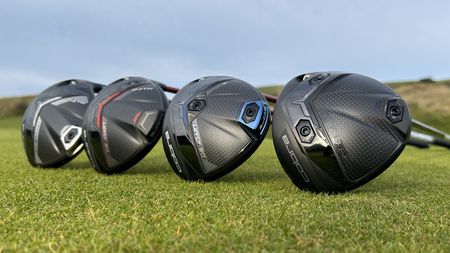 How The New Cobra DS-ADAPT Range Looks To Have Changed Driver Fitting Forever
How The New Cobra DS-ADAPT Range Looks To Have Changed Driver Fitting ForeverWith a revolutionary hosel design and refined aerodynamics, the Cobra DS-ADAPT may just become the standout driver in 2025
By Sam De'Ath Published
-
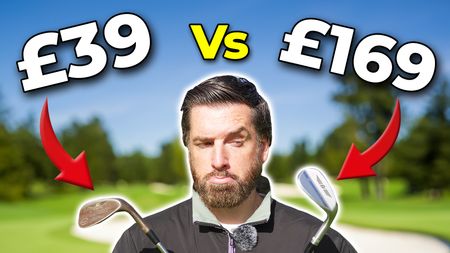 £39 Vs £169 Wedge Test... Surprising Results!
£39 Vs £169 Wedge Test... Surprising Results!In his latest Retro Review, Joe Ferguson sees if the original Vokey wedge picked up for just £39 can compete with the modern equivalent four times the price
By Joe Ferguson Published
-
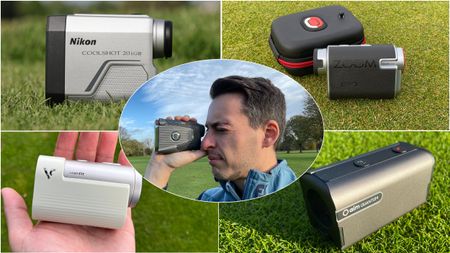 7 Useful Golf Rangefinder Features You Never Knew About
7 Useful Golf Rangefinder Features You Never Knew AboutThink you know everything a rangefinder can do? Think again. We've got seven of the best features currently available on the best modern rangefinders
By Dan Parker Published
-
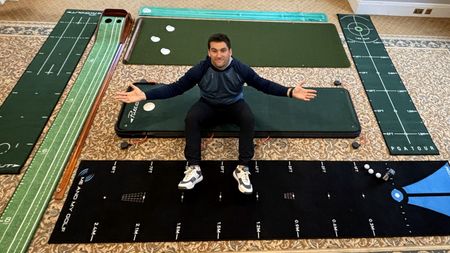 Do Putting Mats Help Improve Your Putting?
Do Putting Mats Help Improve Your Putting?Former professional golfer Sam De’Ath sheds light on whether or not a home putting mat can help improve your performance on the greens
By Sam De'Ath Published
-
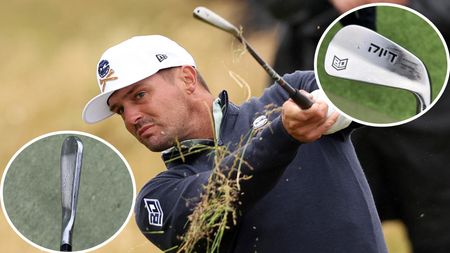 I Tried Bryson DeChambeau’s Actual 7-iron And It Blew My Mind!
I Tried Bryson DeChambeau’s Actual 7-iron And It Blew My Mind!Irons expert Joe Ferguson got his hands on an Avoda 7-iron that was built specifically for the US Open Champion, and here’s what he learned…
By Joe Ferguson Published
-
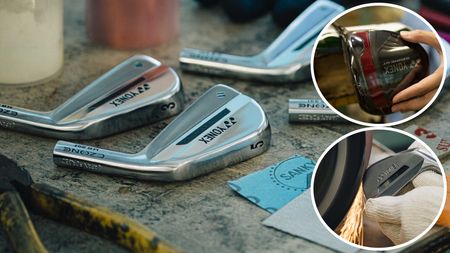 3 Reasons You Should Be Thinking Of Yonex For Your Next Golf Club Upgrade…
3 Reasons You Should Be Thinking Of Yonex For Your Next Golf Club Upgrade…Yonex Golf has some genuine heritage within the game, and with some exciting new product lines, they should be a serious consideration for your next purchase…
By Joe Ferguson Published
-
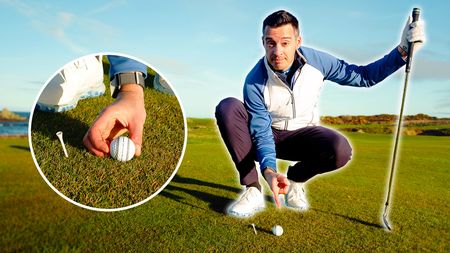 10 Clever Golf Gear Hacks You Should Try This Winter
10 Clever Golf Gear Hacks You Should Try This WinterThese subtle changes to your equipment could well transform your scoring ability in the winter, so why not give some of them a try?
By Joel Tadman Published